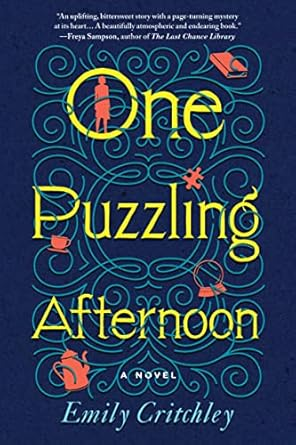This book follows what I find to be a common formula: an (arguably) unreliable narrator, and two different timelines: one in the 50s and the other in the 2010s. So we get bits and pieces of a mystery about a missing girl in alternating chapters.
Our narrator is 82-year-old Edie (or 15 years old in the 1950's time-line). As a child, Edie is an outcast. She's poor and has an unusual home-life, as her mother performs seances. Edie meets Lucy, the mayor's daughter, and they become friends. While Edie adores Lucy and finds her life glamorous in many ways, Edie knows Lucy's love-life is a mess. While the handsome, popular boy is enamored with Lucy, she only has eyes for a much older, married man.
As an 82 year-old woman, Edie struggles with the onset of dementia. Thinking she sees Lucy one day sets her on an obsessive search of her own mind to remember what happened the day Lucy disappeared.
What works for me in this book is how Crutchley portrays Edie's dementia...how we see things from her perspective. Edie might say something that seems nonsensical to anyone else who doesn't know what she's thinking about at the time. But it makes sense to us, because we are privy to her thoughts. But that's not to say Edie is simply misunderstood, she's still suffering from dementia. So she might think she's in the 1950s timeline when it's 2018. But knowing that makes her responses make sense.
I also like Edie's mother, who we don't really know is a fraud or not. There are definite indications that she is, but also indications she isn't. Is she accidentally right some of the time? Or does she have the gift of third sight without knowing it or fully understanding it? In some ways, she's like 82 year-old Edie. Not always making sense in the moment, but time has a way of bringing things together.
While it's a good book, it wasn't one I couldn't put down. And much like those with that formula, it's fun in the moment and an easy read, but not one of my year's best.

No comments:
Post a Comment